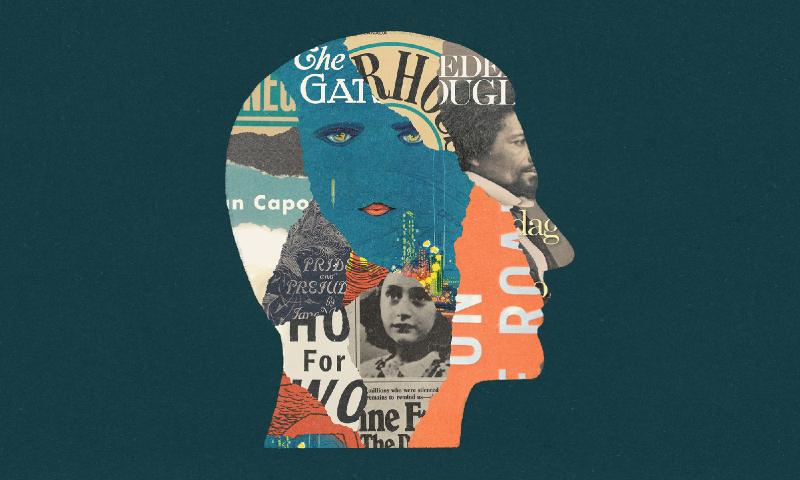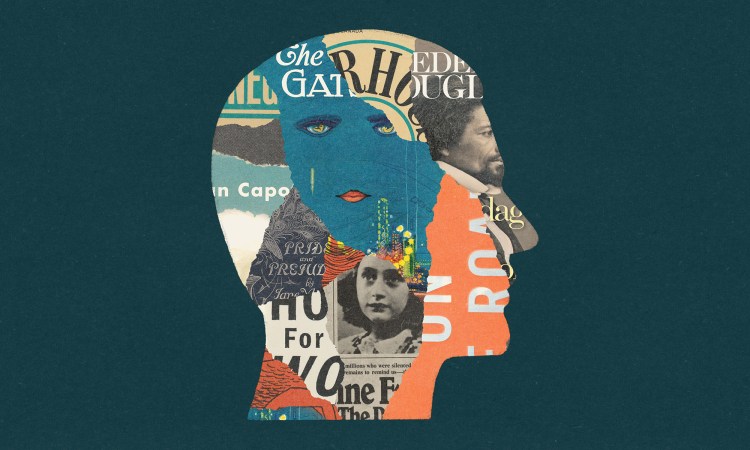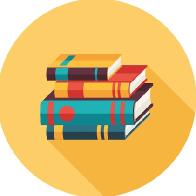6 strategies that will make you a better reader — and person
By: Ryan Holiday



6 strategies that will make you a better reader — and person

Mark Weaver
Reading is a good thing, so obviously doing lots of it is good, right?
Well, this kind of thinking is why people try to speed-read, show off their huge libraries (guilty!), and listen to audiobooks at 2x or 3x speed.
But not all reading is created equal. As Epictetus said, "I cannot call somebody 'hard-working' knowing only that they read." He needed to know what and how they read too.
And even though reading is better than a lot of other activities, you can still do it poorly or for poor reasons. "Far too many good brains," Seneca said, "have been afflicted by the pointless enthusiasm for useless knowledge."
To be a great reader, it is not enough that you read, it's also how you read. The following strategies by no means are a complete list, but if you implement even a couple of them, I'm comfortable guaranteeing that you'll not only be a better reader but a better person too.
1. Stop reading books you aren't enjoying
If you find yourself wanting to speed up the reading process on a particular book, you might want to ask yourself: "Is this book any good?"
You turn off a TV show or movie if it's boring. You stop eating food that doesn't taste good. You unfollow people when you realize their content is useless.
Life is too short to read books you don't enjoy reading. My rule is 100 pages minus your age — so if you're 30 years old and a book hasn't captivated you by page 70, stop reading it.
That way, as you age, you have to endure crappy books less and less.
2. Keep a commonplace book
In his book Old School , Tobias Wolff's semi-autobiographical character takes the time to type out quotes and passages from great books to feel great writing come through him. I do this almost every weekend in what I call a "commonplace book" — a collection of quotes, ideas, stories and facts that I want to keep for later. It's made me a much better writer and a wiser person.
I am not alone.
In 2010, when the Reagan Presidential Library was undergoing renovation, a box labeled "RR's desk" was discovered. Inside it were the personal belongings that Ronald Reagan kept in his office desk, including a number of black boxes containing 46 note cards filled with handwritten quotes, thoughts, stories, political aphorisms and one-liners. They were separated by themes like "On the Nation," "On Liberty." "On War," "On the People," "The World," "Humor" and "On Character."
This was Ronald Reagan's version of a commonplace book, and Lewis Carroll, Walt Whitman and Thomas Jefferson all kept their own version of a commonplace book.
As Seneca advised, "We should hunt out the helpful pieces of teaching and the spirited and noble-minded sayings which are capable of immediate practical application — not far far-fetched or archaic expressions or extravagant metaphors and figures of speech — and learn them so well that words become works."
3. Reread the masters
You were in high school when you read The Great Gatsby for the first time. You were just a kid when someone tell you the story of Odysseus.
The point is: You got it, right? You've already read them or learned about them, so you're done, right?
We cannot be content to simply pick up a book once and judge it by that experience; it's why we have to read and reread.
As Seneca put it, "You must linger among a limited number of master-thinkers, and digest their works, if you would derive ideas which shall win firm hold in your mind." Because the world is constantly changing and we are constantly changing, therefore what we get out of books can also change.
4. Ask people you admire for book recommendations
Ralph Waldo Emerson's line was "If we encounter a man of rare intellect, we should ask him what books he reads."
When I was a teenager, I got in the habit of doing this. Every time I would meet a successful or important person I admired, I would ask them: "What's a book that changed your life?" And then I would read that book.
If a book changed someone's life — whatever the topic or style — it's probably worth the investment. If it changed them, then it will likely at least help you.
5. Don't just learn from your own experience
"If you haven't read hundreds of books," General James Mattis said, "you're functionally illiterate." Humans have been fighting and dying and struggling and doing the same things for eons. To not avail yourself of their knowledge is arrogant and stupid.
How dare you waste investors' money by not reading and learning from the mistakes of other entrepreneurs? How dare you so take your marriage or your children for granted that you think you can afford to figure these out by doing the wrong things first?
Too much depends on you for you to learn solely by experience — you must also learn by the experiences of others. Drink deeply from history, from philosophy, and more. Study the cautionary tales and the screw-ups, the failures and successes.
If you don't, it's a dereliction of duty.
6. Get out of a dry spell
The path to wisdom is not a straight one. The journey is long and circuitous with twists and turns, ups and downs, highs and lows. Maybe you're in the middle of a low right now, or you're at the very bottom of the valley. This can be a scary place to be, because it can feel like you'll be stuck there forever.
You're stuck in a slump.
A reading slump always pops up for me, for instance, during a book launch when it's nearly impossible for me to concentrate enough to read. But I've found I'm able to get out of it by rereading something that has really spoken to me in the past.
Instead of expecting a random book to reach me, I go back to something that's already spoken volumes in the past … and then I find out how much more it has to say. I'll grab a new translation of Marcus Aurelius and see him from a different view, or I'll go reread a favorite novel, such as A Man in Full or The Moviegoer or Memoirs of Hadrian .
To learn more strategies to help you be a better reader — and human — go to Ryan Holiday's blog, where this post was first published. There, you can also read more of his posts and find out about his books and other work.
About the author
Ryan Holiday is the author of numerous bestselling books one of the world's bestselling including The Obstacle Is the Way, Ego Is the Enemy, The Daily Stoic and the #1 New York Times bestseller Stillness Is the Key. They've been published in more than 40 languages and have sold more than 4 million copies. He also owns a bookstore, The Painted Porch, which sits on historic Main Street in the town of Bastrop, Texas.
The Code of Conduct and Terms of Service must be complied with.
Any comment posted about politics or religion not relevant to the seeds/articles that are posted will be deleted.
The administrator reserves the right to delete any comment he considers to be offensive, off topic or of no value.
Videos or images or links to sources that the Administrator cannot open must be described or explained when requested or they will be deleted.






I WILL start reading again - I expect to soon get the 10 volume set on Chinese culture and traditions (that I posted a seed about a while ago) so all of you won't have to suffer through so many of my OFF-TOPIC articles/seeds that I've been posting. You don't have to tell me, I'm aware that ON TOPIC means Trump and other lesser American political interests.
A lot of good advice. I do re-read the Masters, but it has been awhile for Gatsby I think that will be my first book of the year.
I do not have a collection of quotes, sayings, facts or ideas, but that does seem like something I should try since I do quote a lot of books and think about their plot lines.
I do put down books I am not enjoying, but sometimes I feel like I have failed when I do not reach the end of a book.
Sad to say most of the people in my life are non-readers.
I have been low for some time now - I think it is time to raise myself up by doing something that I thoroughly enjoy, just for me - READ.
Thanks for this Buzz. My spirits are raised a bit already.
I'm so glad that we have you back with us, and I'm happy your spirits are rising.
Thank you. It is good to be back.
I just dug out my copy of Gatsby. I am beginning it today.
The description of the glasses always freaked me out.
There are movies that will have an image that will remain with you long after seeing it, often being the first thing that comes to mind when the name of the movie is seen or heard. Back when I did the original quizzes, I would think that if I were to use that sign as the sole clue, I'm sure most players would know the movie I meant.
I would definitely know that clue.
Your presence improves the place
Hear! Hear!
Thank you so much...
I blush.
...and I smile.
Ok - so which book is next? I finished Gatsby.
I listened to The Great Gatsby on audiobook a couple years ago and was very impressed. Fitzgerald was a great writer.
I would suggest Pride and Prejudice if you've not already read it, then you might enjoy a switch to Sci-Fi, in which case I'd suggest Frank Herbert's Dune.
I have read P&P. I tried Dune and could not make it all the way through. Which truly frustrated me since I made it all the way through Moby Dick.
I enjoyed John Grisham's novels, but it may be because of my profession. And maybe because of where I am and having learned a lot about the culture and traditions here I enjoyed reading Journey to the West, notwithstanding it's more than 1000 pages.
The last few years I have rereading authors that I have really liked over the years - mark Twain, Harper Lee, Arthur Conan Doyle, Kurt Vonnegut, John Steinbeck, The Brothers Grimm and Hans Christian Anderson, Alex Haley, Herman Wouk to name a few.
I have found few recent releases that I have enjoyed (often I did not even finish them)
Of Mice and Men, The Adventures of Tom Sawyer. To Kill a Mockingbird and Slaughter House Five are books I have read multiple times and enjoyed each time.
I feel the same way about a lot of the more recent movies I've been watching, and in some cases don't bother watching them to the end.
I wouldn't even TRY to remember how many times I've read Pride and Prejudice.